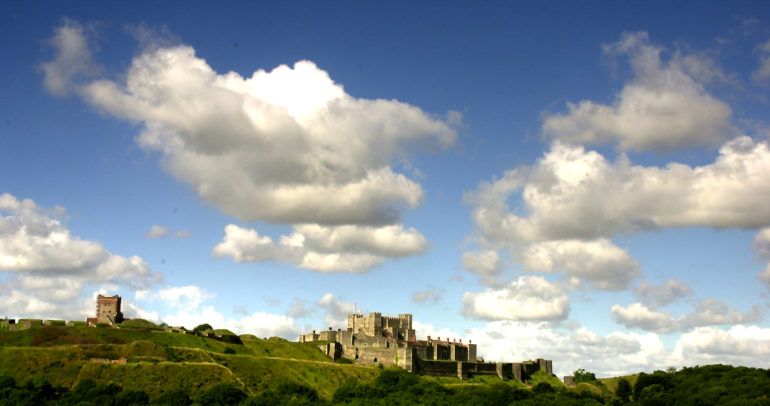Dover Belediye Meclisi, İkinci Dünya Savaşı sırasında fedakarlık yapan ve çektikleri acılar ve cesaretleriyle Avrupa'ya bir kez daha barışın getirilmesine yardımcı olan herkesi anıyor ve onurlandırıyor.
Dover Belediye Meclisi, VE'nin ulusal halka açık anma etkinliklerine katılmayı dört gözle bekliyordu. 8 Mayıs ayı. Artık halka açık anma törenleri yapılamıyor. Covid-19 is one of the gravest threats our national life since the second world war and now, just as then, we are working together as a Town to protect the vulnerable members of our community. We hope to be able to commemorate VE Day later this year when we are allowed to do so, possibly on VJ Day.
Pageantmaster VE Day 2020, Bruno Peak LVO OBE OPR, has written to give official advice on how to commemorate the day safely:
I am afraid that the terrible Coronavirus emergency and consequent Government guidance means that we must advise participants to cancel or postpone the majority of the VE Day 75 community celebrations due to take place on the bank holiday weekend of 8th – 10th May. It is right and proper that people should be kept safe and healthy.
We are also encouraging all those taking part to undertake the ‘Nation’s Toast to the Heroes of WW2’ at 3pm on the 8th May, from the safety of their own home by standing up and raise a glass of refreshment of their choice and undertake the following ‘Toast’ – “To those who gave so much, we thank you,” using this unique opportunity to pay tribute to the many millions at home and abroad that gave so much to ensure we all enjoy and share the freedom we have today.
VE Day 1945
As VE Day dawns on 8th May 2020 it is 75 years since the guns fell silent at the end of the war in Europe. Years of carnage and destruction had come to an end and millions of people took to the streets and pubs to celebrate peace, mourn their loved ones and to hope for the future, but not forgetting those still in conflict until 15th August when it was announced that Japan had surrendered unconditionally to the Allies, effectively ending World War II.
The 75th anniversary provides our nation, and our friends around the world, with an opportunity to reflect on the enormous sacrifice, courage and determination of people from all walks of life who saw us through this dark and terrifying period and celebrate the arrival of peace in Europe.
We remember the members of the Armed Forces and Merchant Navy from many countries who gave their lives or returned home injured in body and mind, the hard-working women and men who operated the factories, mines, shipyards and farms, and ARP wardens, police officers, doctors, nurses, fireman, local defence volunteers and others who toiled day and night selflessly on the home front during difficult frightening and uncertain times.
The consequences of warfare for millions of people across Europe were very great. Whilst many rejoiced at the prospect of peace, the strain of air raids, rationing, hunger and displacement had taken their toll and left many in a reflective, rather than ecstatic, mood.
For some, the celebrations were a painful reminder of loved ones lost in the conflict. Six years of horror and bloodshed had killed approximately 67,200 civilians in Britain and her Crown Colonies, ve 383,700 members of the British Armed Forces. Millions of other men, women and children had died across the world including the Jews and other minorities who were murdered in the death camps. And even though the war in Europe was over, many people were mindful that their friends and relatives were still in action overseas or in POW camps in the Far East and yet to return home.
Dover had seen particular hardship during the war. Because of its close proximity to France, Dover was Britain’s main frontline town during World War ll. As Dover was under threat from long-range weapons on the opposite side of the Channel, Prime Minister Winston Churchill took this seriously. “We must insist upon maintaining superior artillery positions on the Dover promontory no matter what form of attack they are exposed to. We must fight for command of the Strait”. (Speech made by Churchill in 1940.)
During 1939, the Admiralty took control of the port of Dover transforming the harbour into a naval base. Dover suffered heavily because of enemy shelling and bombing raids, causing huge amounts of damage. Despite this, Dover Castle remained untouched by enemy bombs, becoming the symbol of Dover’s strength during the war – a strength that continues to this day.
